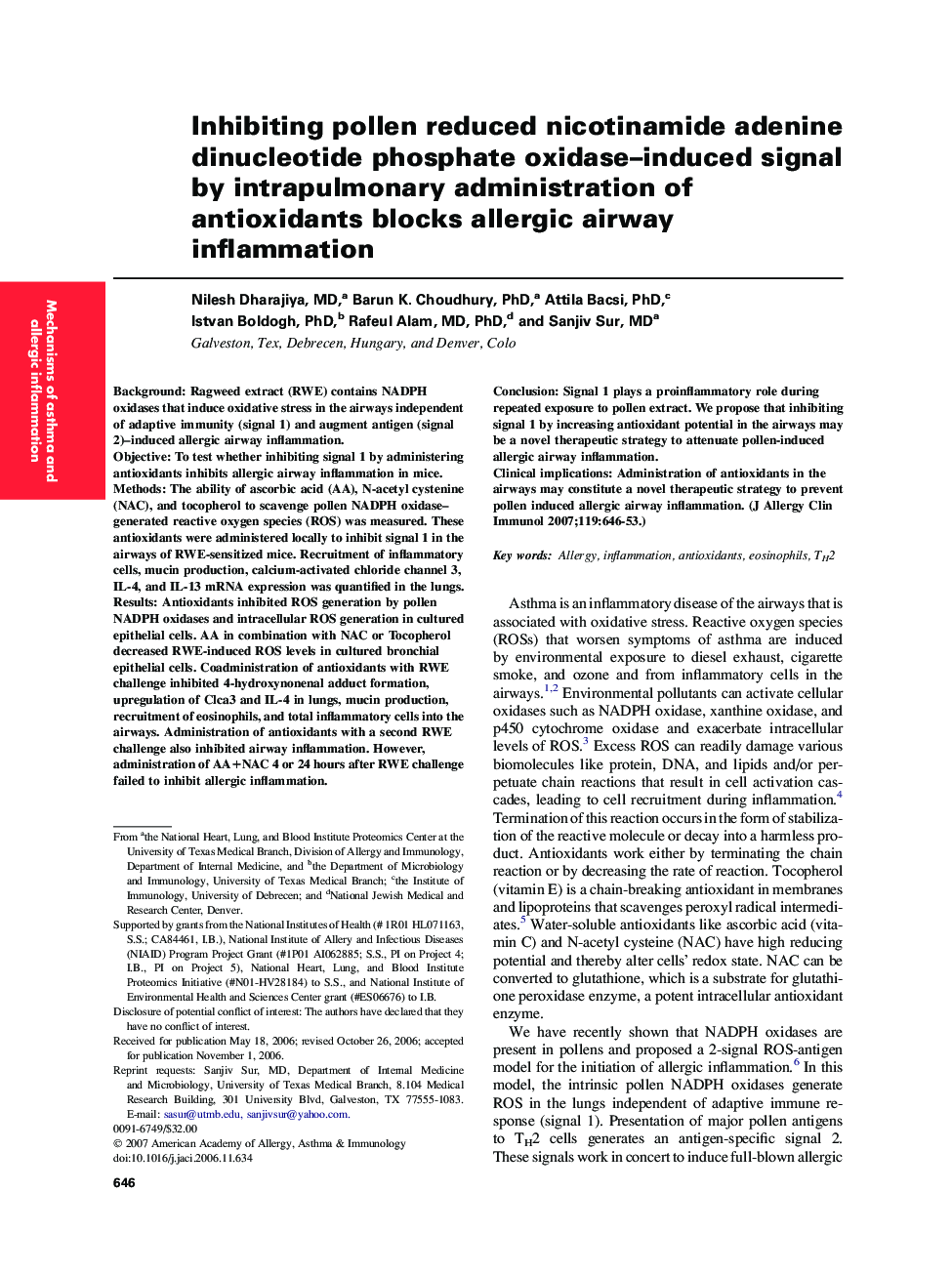| کد مقاله | کد نشریه | سال انتشار | مقاله انگلیسی | نسخه تمام متن |
|---|---|---|---|---|
| 3203413 | 1201998 | 2007 | 8 صفحه PDF | دانلود رایگان |

BackgroundRagweed extract (RWE) contains NADPH oxidases that induce oxidative stress in the airways independent of adaptive immunity (signal 1) and augment antigen (signal 2)–induced allergic airway inflammation.ObjectiveTo test whether inhibiting signal 1 by administering antioxidants inhibits allergic airway inflammation in mice.MethodsThe ability of ascorbic acid (AA), N-acetyl cystenine (NAC), and tocopherol to scavenge pollen NADPH oxidase–generated reactive oxygen species (ROS) was measured. These antioxidants were administered locally to inhibit signal 1 in the airways of RWE-sensitized mice. Recruitment of inflammatory cells, mucin production, calcium-activated chloride channel 3, IL-4, and IL-13 mRNA expression was quantified in the lungs.ResultsAntioxidants inhibited ROS generation by pollen NADPH oxidases and intracellular ROS generation in cultured epithelial cells. AA in combination with NAC or Tocopherol decreased RWE-induced ROS levels in cultured bronchial epithelial cells. Coadministration of antioxidants with RWE challenge inhibited 4-hydroxynonenal adduct formation, upregulation of Clca3 and IL-4 in lungs, mucin production, recruitment of eosinophils, and total inflammatory cells into the airways. Administration of antioxidants with a second RWE challenge also inhibited airway inflammation. However, administration of AA+NAC 4 or 24 hours after RWE challenge failed to inhibit allergic inflammation.ConclusionSignal 1 plays a proinflammatory role during repeated exposure to pollen extract. We propose that inhibiting signal 1 by increasing antioxidant potential in the airways may be a novel therapeutic strategy to attenuate pollen-induced allergic airway inflammation.Clinical implicationsAdministration of antioxidants in the airways may constitute a novel therapeutic strategy to prevent pollen induced allergic airway inflammation.
Journal: Journal of Allergy and Clinical Immunology - Volume 119, Issue 3, March 2007, Pages 646–653